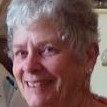
Parashat Vayigash
♦
Parashat Vayigash
Mary Louise Chesley-Cora
9 December 2018
Theme: Joseph, life saver and healer
As the portion opens, Judah draws near (vayigash) to the “governor of the land of Egypt” to plead for the release of his youngest brother. Benjamin was arrested when a gold cup was found in his sack of food as the sons of Jacob were leaving to return to their elderly father. They had gone to Egypt to buy needed grain for survival. They had no idea that the governor was the brother they thought dead. Joseph recognized them and had the cup placed in the sack on purpose in order to find out about his father. With their pleading, Joseph could no longer control himself and he wept loudly as he said to his brothers, “I am Joseph, and is my father still alive?” They could not answer as they were so dismayed. He then repeated, “I am Joseph, your brother, whom you sold into slavery. God sent me here to preserve your lives. (45:5)” There are seven years of famine on the way and two years have passed. Bring my father and all of our family here at once to Goshen for the next five years. Joseph and Benjamin wept and all the other brothers did as well. Pharaoh for his part was pleased that Joseph’s family had come. He told him, “the best that is in Egypt will be yours”. Joseph sent them back with gifts for his father and new clothes and money for their families. He admonished his brothers not to quarrel on the way but to bring back his father Jacob to him. The brothers did so and soon seventy members of Jacob’s family entered Egypt. The meeting between Joseph, his father and his family was filled with emotion. As they arrived, family members who had been shepherds had to change the name of their work from shepherds to “keepers of livestock” as the Egyptians hated shepherds! They came and told Pharaoh “we keep livestock just as our ancestors did.”(47:3)
As the famine deepened, Joseph collected money when the people came for goods and they exchanged livestock for food. When both were gone, they offered land. Joseph took possession of all the land for Pharaoh and thus he was able to give the people corn to eat and seeds to plant. He told them they were to return one-fifth of the harvest for Pharaoh and keep four-fifths of it for their families. This became a statute for all except the land of the priests. The people recognized that Joseph had saved their lives. “We with our land will become slaves of Pharaoh; just give us seed, so we may live and not die.” (47:19). Little did the people realize that this action would bode badly for those following them as future slaves in Egypt. Jacob settled and lived there for seventeen years until his death at one hundred forty-seven years. (47:28)
In the haftarah, long after the time of Joseph and Judah, the Prophet Ezekiel appears as part of the group exiled to Babylon with the fall of Jerusalem in 587 B.C.E. Here he proclaims the word of G_d and foretells of the reunification of the ten lost tribes of Israel to be eventually reunited with the tribe of Judah after this time of exile. To symbolize this he takes two sticks representing the Northern and Southern Kingdoms and puts them together as one. (37:17) He envisioned the people becoming one nation, cleansed by their time in exile. He tells them that Adonai has said: “You shall be my People and I will be your G_d. (37:23) You shall have one shepherd and David shall be your prince forever. “G_d will make a covenant of peace to be an everlasting covenant. (37:26) (In reality, this didn’t happen.) Fulfillment came only to Jerusalem and Judah and eventually to Yehudim (Jews) who inherited Yehudah (Judah). Ezekiel called the exiled people to return to G_d and be faithful to Torah. This call continues today as we are constantly reminded to return to G_d with all our hearts!
For Reflection and Discussion: 1) Joseph realized that good can come out of evil. When have you experienced healing and hope coming from a bad situation? 2) How do these readings offer a sign of hope and healing in face of the past/present abuses that continue to plague our Churches, our countries, our personal lives?
Bibliography: Leibowitz (New Studies in Bereshit (Genesis) – Israel); Fox (The Five Books of Moses – New York, 1995); Plaut (The Haftarah Commentary, New York, 1996)

Mary Louise Chesley-Cora, M.A.T. Religious Studies, Hockessin DE USA, BK alum 2001
Email address: chezcor@msn.com
PLEASE NOTE: The weekly Parashah commentaries represent the research and creative thought of their authors, and are meant to stimulate deeper thinking about the meaning of the Scriptures. While they draw upon the study methods and sources employed by the ISPS-Ratisbonne, the views and conclusions expressed in these commentaries are solely those of their authors, and do not necessarily represent the views of ISPS-Ratisbonne. The commentaries, along with all materials published on the ISPS-Ratisbonne website, are copyrighted by the writers, and are made available for personal and group study, and local church purposes. Permission needed for other purposes. Questions, comments and feedback are always welcome.
Share this with your friends
Institute Saint Pierre de Sion – Ratisbonne – Christian Center for Jewish Studies
Congregation of the Religious of Our Lady of Sion
Contact us:
secretary@ratisbonne.org.il
26 Shmuel Ha-Naguid Street – Jerusalem
Subscribe to Newsletter

No responses yet